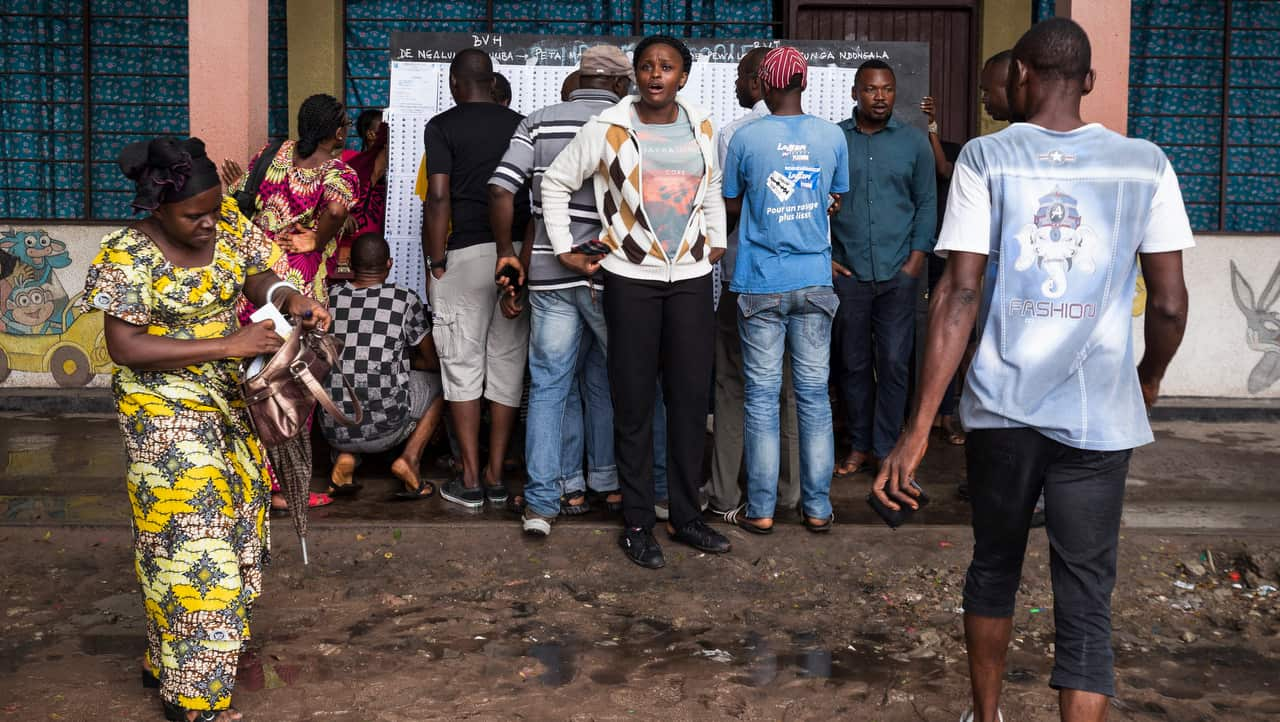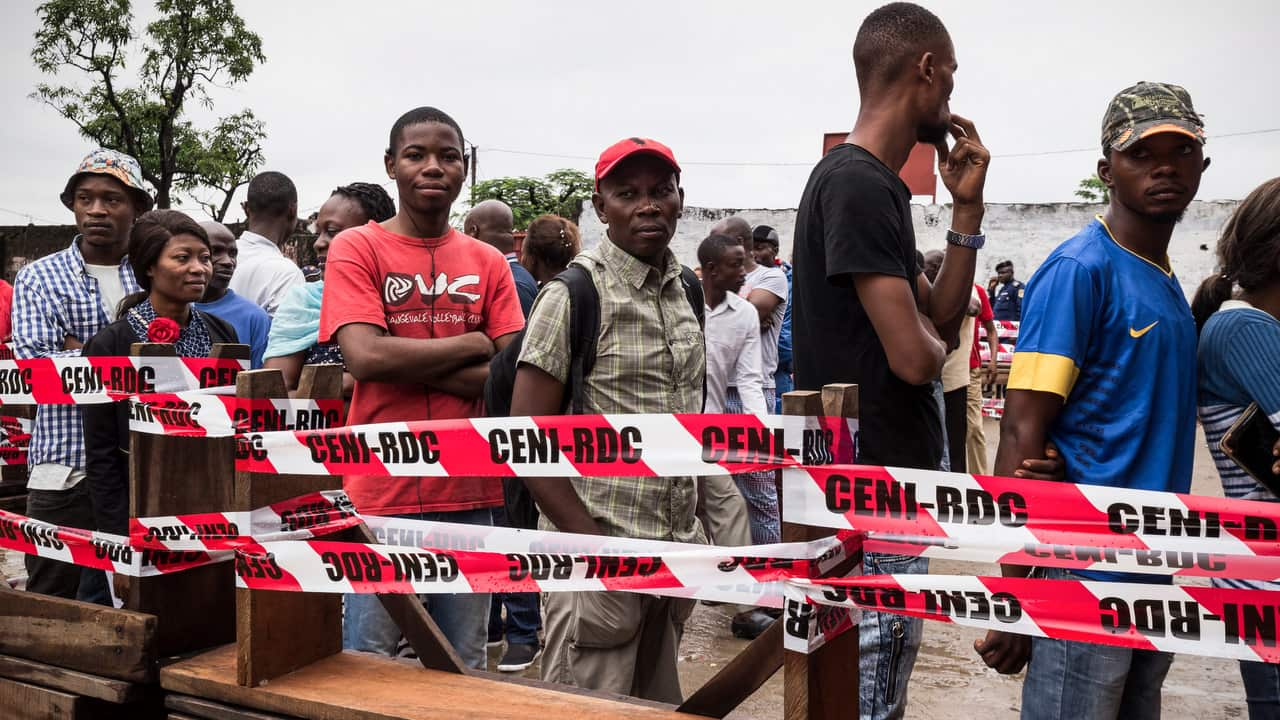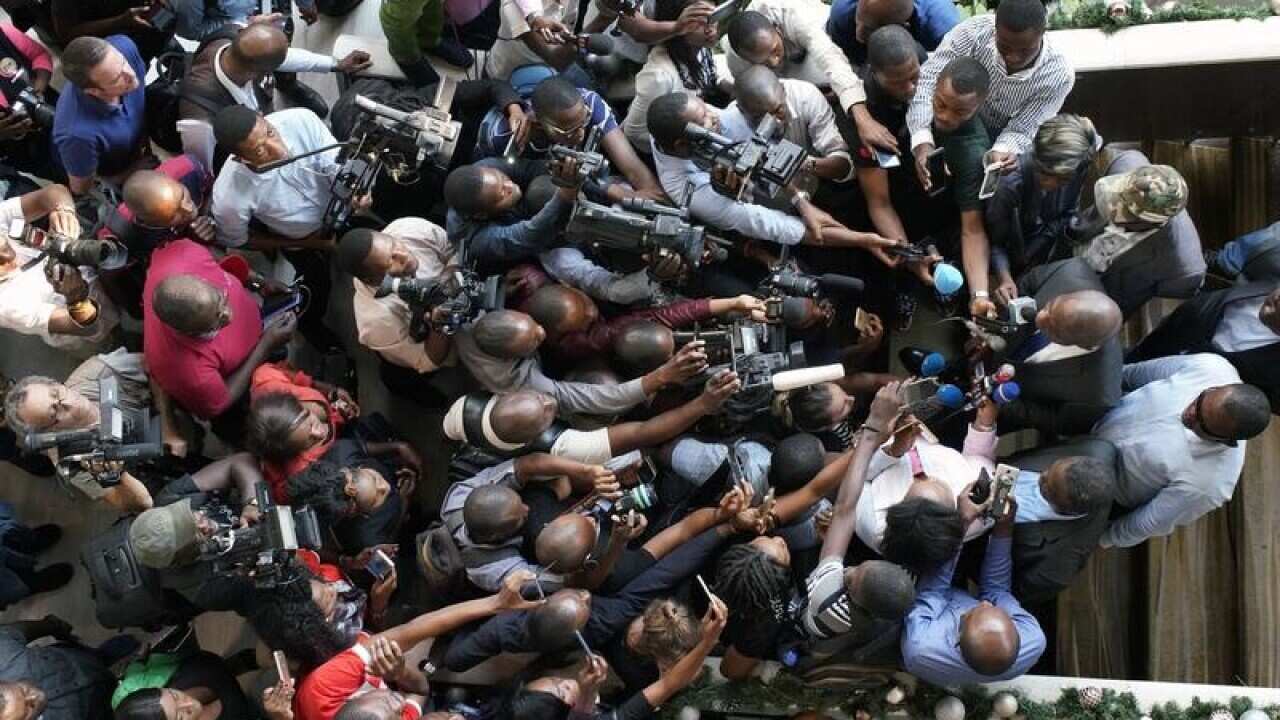After two years of delays, crackdowns and political turmoil, the Democratic Republic of Congo voted Sunday in presidential elections that will determine the future of Africa's notoriously unstable giant.
Facing fears of bloodshed and a test of integrity, polling day appeared to be free from violence but frustration over problems and controversial voting machines ran deep.
The vote gives the DRC the chance of its first peaceful transfer of power since it gained independence from Belgium in 1960.
Analysts, though, say the threat of upheaval is great, given organisational hitches and suspicion of President Joseph Kabila, who refused to quit in 2016 after his two-term limit expired. The election's credibility has been strained by repeated delays, fears of chaos on polling day and accusations that electronic voting machines would help to rig the result.
The election's credibility has been strained by repeated delays, fears of chaos on polling day and accusations that electronic voting machines would help to rig the result.

People look for their names on voters' lists at a polling station in Kinshasa, Democratic Republic of the Congo, 30 December 2018. Source: AAP
On election eve, talks aimed at averting violence after the vote broke down.
Opposition frontrunners Martin Fayulu and Felix Tshisekedi refused to sign a proposed code of conduct with Kabila's preferred successor, Emmanuel Ramazani Shadary. They accused officials with the Independent National Election Commission (CENI) of thwarting changes to the text.
The UN, US and Europe have appealed for the elections to be free, fair and peaceful -- a call echoed by the presidents of Angola, Botswana, Namibia, Zambia and the neighbouring Republic of Congo.
And in the Vatican, Pope Francis led thousands of worshippers in St. Peter's Square on Sunday in prayers for "normal and peaceful" elections.
Opposition chance?
Polling stations opened in the east of the country a little after their scheduled time of 0400 GMT and an hour later in Kinshasa and the west.
Kabila voted in the capital along with his family, just minutes before Shadary also cast his ballot in the same polling station.
"I feel liberated, freed," said Victor Balibwa, a 53-year-old civil servant and one of the first voters to cast his ballot in Lubumbashi, the country's mining capital in the southeast. "I'm excited to vote, to be able to choose at last. It's my first election," an 18-year-old student named Rachel told AFP in the eastern city of Goma, an opposition stronghold.
"I'm excited to vote, to be able to choose at last. It's my first election," an 18-year-old student named Rachel told AFP in the eastern city of Goma, an opposition stronghold.

Voters queue to cast their ballots in the general elections in Kinshasa, Democratic Republic of the Congo. Source: EPA
Some polling stations opened late in Goma and elsewhere.
In one, electoral officials were still adjusting voting machines and in another a technician needed to restart a machine that had broken down, an AFP reporter saw.
The last polls are due to close at 1600 GMT. Provisional results are due on January 6.
Twenty-one candidates are contending the presidential election, which is taking place simultaneously with ballots for the national legislature and municipal bodies.
The frontrunners include Kabila's champion Shadary, a hardline former interior minister facing EU sanctions for a crackdown on protesters.
His biggest rivals are Fayulu, until recently a little-known legislator and former oil executive, and Tshisekedi, head of a veteran opposition party, the UDPS.
If the elections are "free and fair," an opposition candidate will almost certainly win, according to Jason Stearns of the Congo Research Group, based at the Center on International Cooperation at New York University.
Opinion polls indicate Fayulu is clear favourite, garnering around 44 percent of voting intentions, followed by 24 percent for Tshisekedi and 18 percent for Shadary, he said.
However, "the potential for violence is extremely high," Stearns warned.
Between 43 and 63 percent of respondents said they would not accept the results if Shadary is declared winner, he said.
And between 43 percent and 53 percent said they did not trust DRC's courts to settle any election dispute fairly.
However, Kabila said he was confident "everything will go well on Sunday".
"I want to reassure our people that measures have been taken with the government to guarantee the safety of all sides, candidates, voters and observers alike," he said in his end-of-year address broadcast Saturday.
Frail giant
Eighty times the size of its former colonial master Belgium, the DRC covers 2.3 million square kilometres (920,000 square miles) in the middle of Africa, behind only Algeria in area on the continent.
Gold, uranium, copper, cobalt and other riches are extracted from its soil, but little of that wealth comes down to the poor.
In the last 22 years, the country has twice been a battleground for wars drawing in armies from around central and southern Africa.
The legacy of that era endures today in the DRC's eastern border region, where ruthless militias have carried out hundreds of killings.
Insecurity and an ongoing Ebola epidemic in part of North Kivu province, and communal violence in Yumbi, in the southwest of the country, prompted the authorities to postpone the elections there until March.
Kabila said the vote would take place "as soon as the situation allows it".
Around 1.25 million people, out of a national electoral roll of 40 million, are affected.
No explanation has been offered as to whether or how the delayed vote will affect the official outcome, and legal experts say the postponement is unconstitutional.
Share


